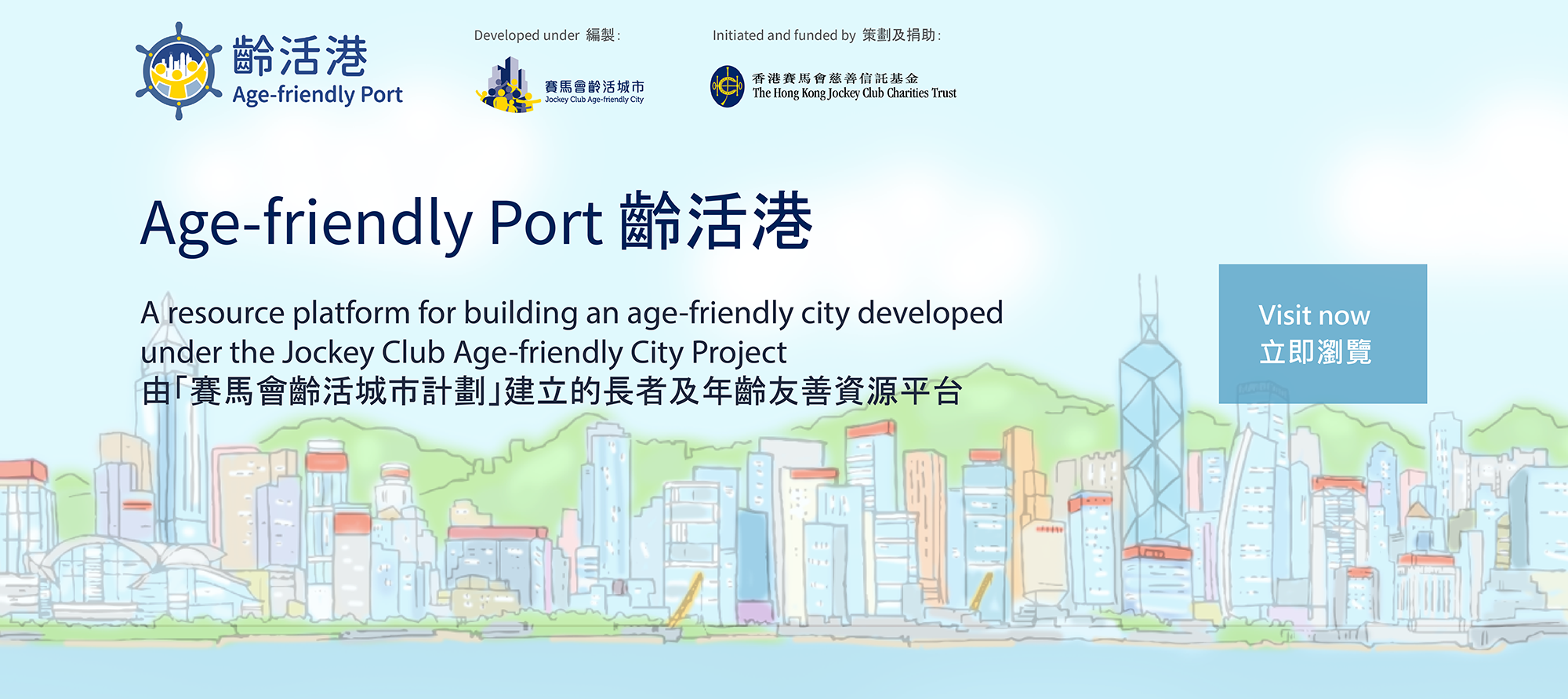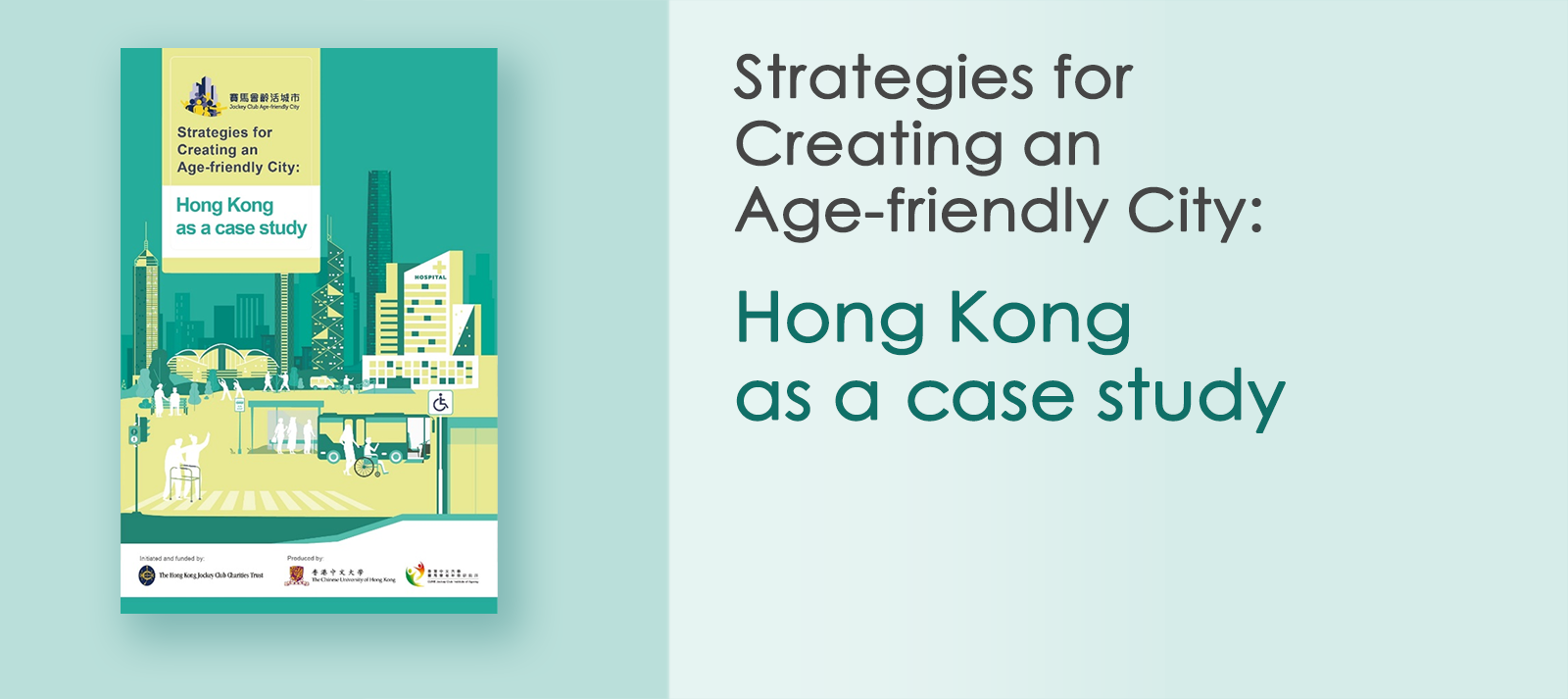Age-friendly Community and the Decade of Healthy Ageing
Featured News

Significance of the Hong Kong Quality of Life Index for measuring the wellbeing of older people
Using a multidimensional index of quality of life (i.e., The Hong Kong Elder Quality of Life Index), our researchers documented the changes in the quality of life of older people in Hong Kong from 2017 - 2020. Improvement in well-being was in tandem with the implementation of age-friendly policies and programs, whereas deterioration was marked during the period of social unrest and pandemic. The index is a timely and valid tool to monitor the well-being of older people, informing policies to maintain well-being of older people. Find out more >
Better understand the association between social gradient of self-rated health in older people and sense of community
Our researchers found a social gradient of poor self-rated health by measures of socioeconomic status including monthly income, educational attainment and financial sufficiency among older people in Hong Kong. There is also evidence supporting a stronger gradient in educational attainment among those with higher sense of community. Find out more >


Empirical evidence on the effectiveness of Age-friendly City initiatives on building age-friendly environment
Our researchers, in collaboration with other researchers from three local universities, evaluated the impact of the AFC initiatives on the perceived friendliness in Hong Kong, using a bottom-up, mixed-method approach. Converging findings from surveys and focus group interviews indicated significant improvements in multiple domains of perceived age-friendliness in Hong Kong. Find out more >









